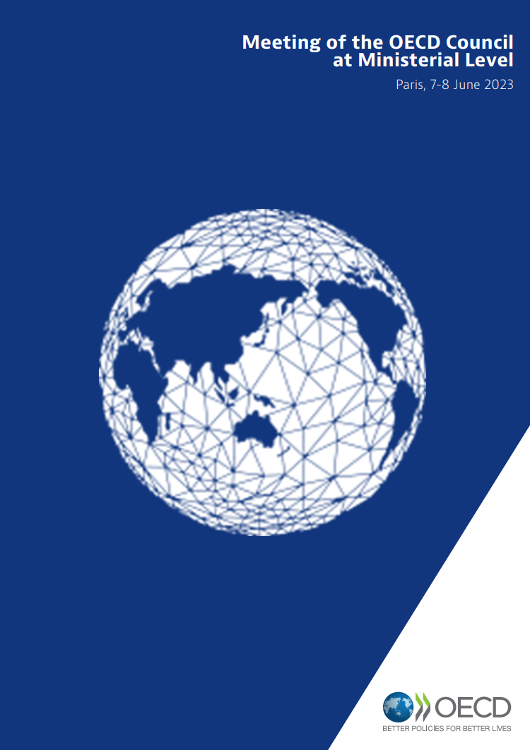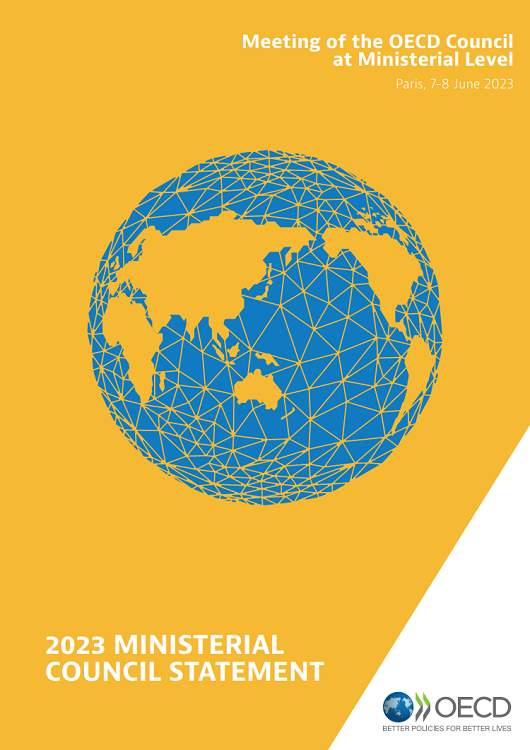Remarks by Mathias Cormann,
Secretary-General, OECD
Paris, 2 June 2021
Dear President Trumka, Mr. Habbard, Esteemed Colleagues,
I am delighted to address the TUAC Plenary on my first full day as Secretary-General and to begin my term with a very important partner. Since my arrival in Paris a month ago, I have had the opportunity to engage with President Trumka and Mr. Habbard, reflecting on the relationship that the OECD has forged with TUAC over the past 60 years to better serve the international community, with great success.
As a valued partner in the OECD's endeavour to create better policies for better lives, TUAC continues to advocate for Trade Unions and other essential stakeholders. From our collaboration on the Liaison Committee Meetings and the Ministerial Council Meetings, to our work within the G7 and G20 frameworks, your contributions have been numerous, and your valued participation in our many committees serves as a testament to our singular vision for a brighter future.
In the lead up to my appointment as Secretary-General, many of you may have read political commentaries about my views and my background. However, much of what has been said during political contests need to be discounted. I am genuinely committed to public policy that promotes better opportunities for all workers and leaves no one behind. I look forward to working positively and constructively with TUAC, as a longstanding partner of the OECD and I will always be open to your advice and feedback.
After one year enduring the worst health, economic and social crisis in the OECD’s 60-year history, the economic outlook appears to be improving. The Economic Outlook, launched on Monday, projects global GDP growth at 5.8 % this year, compared to 4.2% projected last December and at 4.4% in 2022. However, the near-term outlook remains very uncertain due to renewed virus outbreaks, and prospects are diverging across countries.
Labour markets have been hit hard, with the unemployment rate in OECD countries remaining above pre-crisis levels at 6.5% in March this year - down from a peak of 8.8% in April last year, but still a full percentage point higher than before the crisis. Vulnerable groups have been hit particularly hard. Hours worked dropped by 24% in the year to the second quarter of 2020 for low-educated workers, compared to a fall by 8% for higher educated workers.
Young people are once again among the big losers from the crisis. The OECD youth unemployment rate surged to 18.9% in April 2020, and has only partially receded to 13.7% in February 2021. This is still significantly above the youth unemployment rate from before the crisis.
In OECD countries, many governments have cushioned the pandemic’s economic damage and prevented an even greater economic contraction through support policies. The OECD has also responded to the crisis by delivering facts, evidence, analysis and recommendations to support countries’ response efforts. For example, the COVID-19 Digital Hub, which we launched when the crisis hit, produced over 200 policy briefs on virtually every policy area and has received over 3.1 million unique visitors.
Looking ahead, solutions for an inclusive and sustainable recovery must be rooted upon our resolve to address these challenges together.
The new OECD Jobs Strategy, developed in 2018, provides a framework for rebuilding labour markets – in terms of both quantity and quality of jobs, labour market inclusiveness, and labour market resilience and adaptability. Much of this will be the focus of the 2021 OECD Employment Ministerial at the end of this year.
TUAC has played an important role in the development of the new OECD Jobs Strategy as well as in the discussions on how to respond to the crisis, both at the Committee level and in its engagement with the MCM process. The recommendations of the Jobs Strategy will help countries adapt to ongoing structural transformations such as digitalisation, climate change, globalisation and demographic change. We also look forward in working together to support governments and other stakeholders in implementing the Youth Action Plan that was welcomed by Ministers at the MCM, as well as advancing our very important work on gender and women’s economic empowerment.
We will also take TUAC’s good advice to ensure that his recovery is greener than ever. The OECD Green Recovery Database shows that in the 43 OECD and partner countries monitored, only about 17% of overall COVID-19 stimulus is green, and that a nearly equal proportion is likely to have a negative or mixed environmental impact. If we are to have a green, digital and inclusive recovery, this demonstrates the need to support workers – as well as economies – to meet the requirement for a just transition.
Building back better also requires aligning short-term recovery efforts with the long-term ambition to monitor and achieve a people-centred green transition, as highlighted by our ongoing work to develop an OECD Recovery Dashboard and the International Programme for Action on Climate (IPAC).
Lastly, through the Global Deal Initiative, the OECD, in cooperation with the International Labor Organisation (ILO), will continue to foster effective social dialogue, consultation, negotiation between or among representatives of governments, employers and workers on economic and social policy issues to promote inclusive growth, create more and better jobs, and make globalisation work for everyone. We count on TUAC to help us develop and disseminate those important new initiatives.
Dear colleagues,
The COVID-19 pandemic has highlighted many systemic weaknesses - including in health infrastructure, in the labor market, including for the self-employed and SMEs, in global supply chains, on energy and climate issues, and on gender issues.
I am confident in what the OECD and our important social partners such as TUAC can achieve through effective social dialogue. Count on the OECD to work with you, and for you, to build a better future together. I wish you a rich discussion today and look forward to continuing to expand and deepen our collaboration with TUAC.
Thank you!

